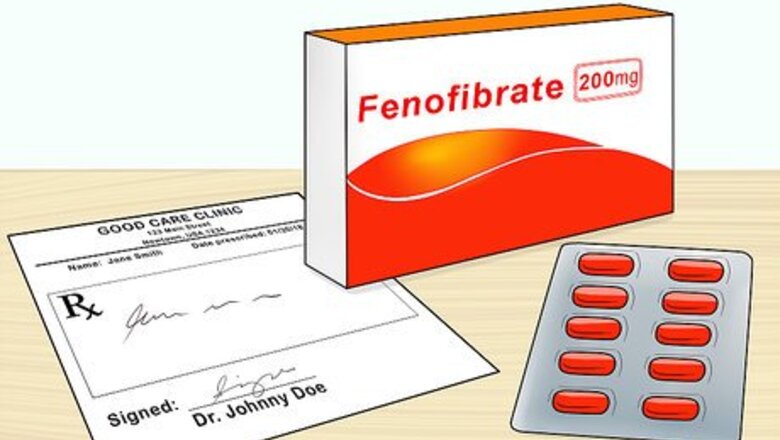
views
X
Trustworthy Source
National Heart, Lung, and Blood Institute
Research and education center within the National Institutes of Health
Go to source
Taking Fenofibrate as Directed
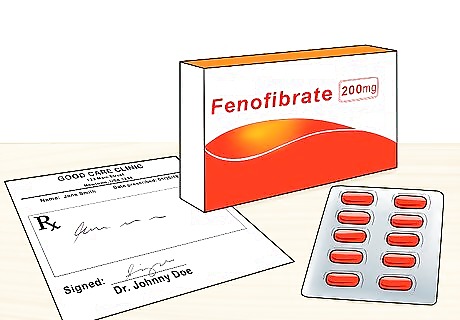
Fill your prescription. Fenofibrate medications are available with a prescription and can come in both generic, called simply fenofibrate, or brand name forms. Some common brand names for this medication include Antara, Fenoglide, Lipofen, TriCor, Triglide, and Trilipix. If your doctor has prescribed a brand name, ask them if the generic can be prescribed instead, as that will probably cost you less and will work just as well in the same dosage. Before taking fenofibrate, you will have had your cholesterol tested by a doctor. If they determine that your triglycerides are too high, they may prescribe fenofibrate to lower your levels quickly.
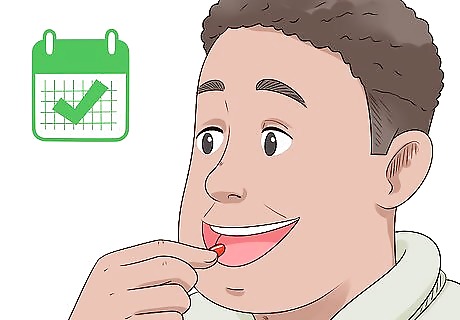
Take your fenofibrate daily. In most cases, you will be told to take this medication once a day. You should try to take it at the same time every day, so that the amount of medication you have in your system stays constant. If you have trouble remembering to take your medication, set an alarm that reminds you to take it. You can also keep on schedule by always taking it with a specific meal, such as breakfast. If you forget to take your medication at the designated time, take it as soon as you remember. However, if you forget until it's almost time to take your next dose, simply skip the dose you missed and follow your usual schedule from then on out.

Follow other directions. When taking fenofibrate, it is often advised to take it with food, as this helps your body absorb the medication. Also, whether it comes in tablet or capsule form, it should be taken whole, not chewed or crushed up. Follow any additional instructions that your doctor includes with your prescription.

Continue taking the medication for as long as directed. Continue taking your medication for as long as your doctor has told you to. Even if your triglycerides have been reduced, your doctor may want to your keep taking the medication to keep them down. If you would like to stop taking the fenofibrate for some reason, talk to your doctor before discontinuing use.
Identifying Side Effects and Drug Interactions
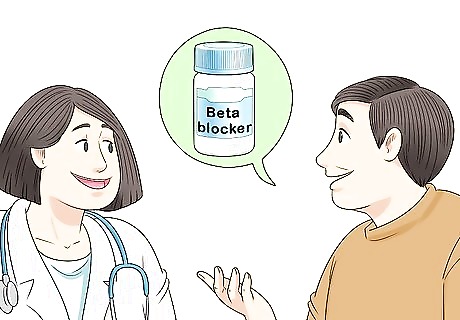
Tell your doctor about other medications you are taking. It's important to make sure you will not have any drug interactions before you begin taking fenofibrate. Tell your doctor about all of the medications you are taking so that they can determine if fenofibrate is safe for you to take. Some medications that may not be good to combine with fenofibrate include: Anticoagulants Beta blockers HMG-CoA reductase inhibitors Hormone replacement therapy drugs or hormonal contraceptives Immunosuppressants Bile acid resin

Tell your doctor about other medical conditions you have. There are some medical conditions and lifestyle choices that should prevent you from taking this medication. If you have any of these conditions, it is likely that your doctor will not prescribe you fenofibrate: Kidney, liver, or gallbladder disease Diabetes Hypothyroidism Excessive alcohol consumption Pregnancy Breastfeeding
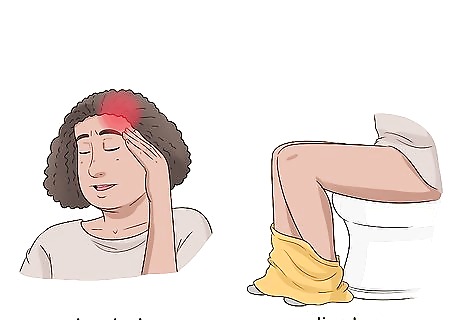
Identify minor side effects. When you take fenofibrate, you may experience minor side effects, such as heartburn, diarrhea, headache, or muscle aches, pain, or stiffness. These side effects often go away on their own after the start of treatment, but if they occur at all you should tell your doctor that you are experiencing them. If the symptoms don't go away, ask your doctor if you can treat these side effects with an over-the-counter pain reliever, anti-diarrheal, or antacid.
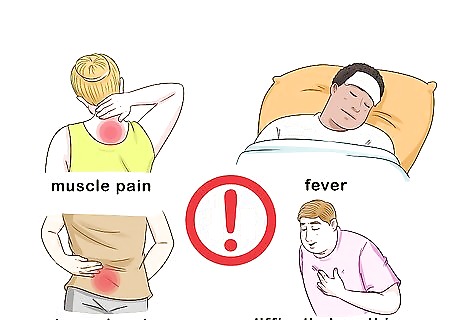
Contact your doctor if you experience severe side effects. Fenofibrate can cause some serious side effects. If you experience any of these side effects, you should contact your doctor right away: Weakness Fever Rash, hives, or blistering skin Stomach pain, nausea, or vomiting Difficulty breathing Dark urine Yellow eyes or skin
Using Complementary Treatments
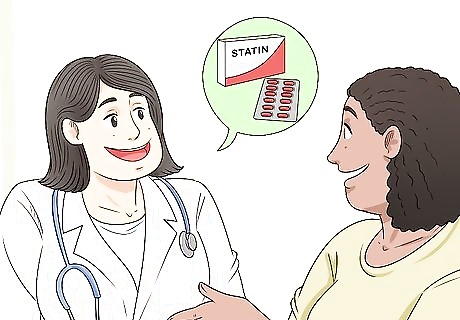
Discuss treatment options. Once you have been diagnosed with high cholesterol, it's important to have a discussion with your doctor about what can be done. They may suggest a variety of treatment options and may be willing to adjust their suggestions based on your input. In some cases, you may be prescribed another medication, in addition to fenofibrate. For instance, you may be prescribed a statin medication. In many cases of high cholesterol, your doctor will suggest a combination of treatments that includes both lifestyle changes and medication.
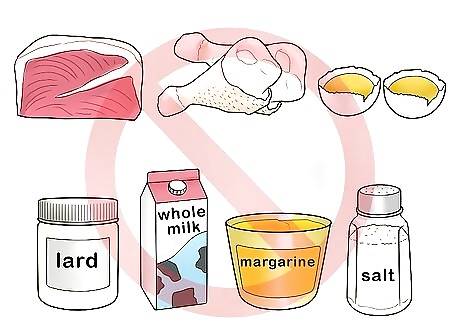
Avoid foods that increase your cholesterol. One of the most effective ways to lower your cholesterol is to eliminate high cholesterol foods from your diet. Foods that should be avoided include: Fatty cuts of meat Poultry with the skin on Whole-milk dairy Lard Egg yolks Margarine or shortening high in trans fat Salt
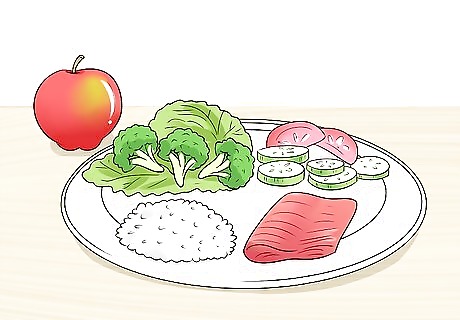
Eat foods that will reduce your cholesterol. Focus on eating only healthy fats, such as those contained in leaner meats, low-fat dairy, and healthy oils, such as olive and canola oil. You should also increase the amount of omega-3 fatty acids and soluble fiber that you eat, as these can help lower your bad cholesterol levels. Overall, your diet should consist of a balance of fruits and vegetables, whole grains, and low-fat proteins.
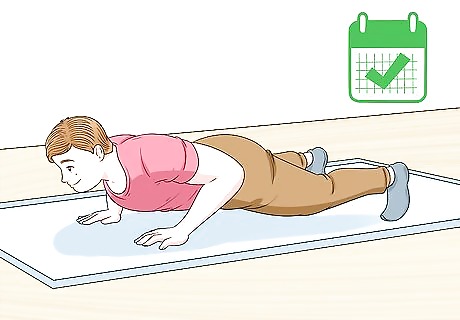
Exercise regularly. Daily exercise can help minimize your bad cholesterol and increase the amount of good cholesterol in your system. Whatever type of exercise you enjoy doing, try to do it for at least 30 minutes a day. Even if you cannot do 30 minutes of exercise every day, keep in mind that any amount of exercise is better than none. Getting daily exercise can be as simple as taking a walk after dinner or walking to do nearby errands, instead of driving.


















Comments
0 comment